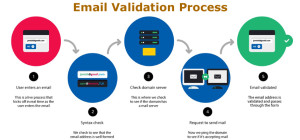 Finding a reliable, cost-effective, and secure web hosting service provider is the first and foremost step in the journey of growing your online business. There are dozens of service providers out there, each promising to be the best one to host your website, but how can you really assess the quality of their service? How can you find out if that company is right for your business? This blog helps you find the answers!
Finding a reliable, cost-effective, and secure web hosting service provider is the first and foremost step in the journey of growing your online business. There are dozens of service providers out there, each promising to be the best one to host your website, but how can you really assess the quality of their service? How can you find out if that company is right for your business? This blog helps you find the answers!
11 Signs of a Good Web Hosting Service
A proper web hosting provider should offer its users a range of features. While deciding to subscribe to a hosting service, make sure it provides you a decent match of the qualities below.
Storage:
The first and foremost factor to consider should be the amount of storage your web hosting service provider offers. For most small and medium websites, a few GB of data storage is enough. Some may provide unlimited volume with extraordinary conditions applied. So make sure you read the details or contact support representatives to get an accurate picture.
Bandwidth:
Many users confuse bandwidth with storage. Technically, bandwidth is the amount of cumulative data that a web hosting company gives you to upload or download in a given month. Once the bandwidth limit is consumed, the host will charge you as per the number of visitors or data consumed. So keep an eye on bandwidth, mainly if your website hosts multimedia and allows users to download and upload content frequently.
E-commerce & Email Features:
Email accounts are usually an integral part of the web hosting plan. Many web hosting services offer multiple free email accounts for your domains. You need to pre-check how many email accounts you can set up with their plan. Moreover, make sure you’ll check their email sending/receiving interface and ability to integrate with other email programs such as Gmail.
Do they offer a facility to receive an email from your favorite client via Outlook, IMAP, or just POP? For starters, the number of accounts and integration with Gmail should be more critical than other too much techie stuff.
Moreover, if you are running an eCommerce, confirm if the web host offers some key features. SSL certification dedicated IP and one-click shopping cart software installation are examples of features you will need. Ask your web developer to help you list down those required features.
The Number of Domains and Subdomains:
If you run a website that needs to have a blog, you might need a subdomain. Also, you most probably want one another when your one site is successful.
It would be painful to manage a hosting account for each website you own. So ensure your web hosting provider directions let you host multiple domains from a single dashboard. Before subscribing to a domain or hosting service provider, make sure if there is some limit on how many domains you can manage from a single account. The same is true for subdomains.
Database Management & Support:
In the web hosting market, there are various types of database management systems. You’d better ensure that there is integration and alignment with your website and hosting company’s system.
Since websites need to have a backend database, you need to ensure that your website host offers you the type of database system you’re used to.
If you don’t find this mentioned in their services’ description, rush to their customer support. You should call them, send them an email, or have a chat with some CSR to clarify in advance and avoid any difficulty later on.
Support for Frameworks and CMS:
There are many frameworks and content management systems for websites and blogging networks. However, not every web host supports every framework or blogging/content system. So it’s essential to check if your host offers compatibility with your preferred framework and offers a one-click install facility.
Backup & Security Services:
Cybersecurity is a crucial component in today’s web management. Hackers, software bugs, and hard disk failures can cause data loss from the websites. Thus you need to ensure a proper backup mechanism. In this regard, you are urged to find a hosting web agency with a reliable backup system that regularly records files. Some have 24 hours, while others do it many times during the day. Moreover, ask if you can download some copies from the control panel.
Remember, if your website deals with users’ data like signup and private information. It would be best if you gave this element very serious thought—no compromise on the security of your and people’s sensitive data.
Quality of Customer & Technical Support:
They say, “The internet never sleeps.” So web hosting firms need to provide excellent technical and customer support. Try to find a web hosting provider that guarantees integrated customer support. It can be a local or toll-free phone number, live chat, social media, email, or other support systems 24/7.
Another element is technical support. Some service providers might claim to offer 24/7 customer support. Still, such claims do not guarantee that you will receive fast and knowledgeable answers. You can cross check their quality of tech knowledge by asking some technical questions before opening up an account.
Guaranteed Uptime:
As usual, failure is always associated with machines and computers. Power outages, equipment failures, or some internet blackout can result in downtime for clients’ websites. The web hosting company should prepare a set of compensating power resources to be ready for such incidents.
It would be best if you ask your web hosting provider if they have proper hardware infrastructure, internet speed, backup & support process or not. It’s worth knowing that 99.0% uptime still permits up to 100 minutes of downtime each week. Top-level web hosting companies offer 99.999% uptime, or maybe even better than this. Find out how reliable your prospective web hosting service is.
Good Reputation:
We buy or sell things based on reputation. The same applies to internet hosting services as well. If a hosting company such as RouterHosting for example enjoys a top-notch reputation, it probably provides excellent customer service and good user experiences with minimal downtime. There are many ways to assess a company’s reputation as a reliable web hosting service provider. You can do this by doing the following:
- Check background, history, and achievement notes
- Read authentic customer testimonials.
- Check out reviews on the rating websites. But don’t rely on a single positive or negative review; the author might have a hidden motive.
- Get information about web hosts from research companies, online forums, and listing websites.
- Check out your social network. Ask friends to refer to the best web host in the town and see if they already have some experience with them or not.
- Check their social media profiles. Read customer comments about them in discussions, group chats, and forums.
- Ask for advice from offline friends and family. They can refer to some reliable agency in the locality.
There are some online review and advice websites as well. You may visit Yelp, MouthShut, and TrustRadius and check what good options are and what do people say about those.
Check the ranking of their website on the Google search results page. Mostly, a good company enjoys a high-ranking search presence as well.
Subscription Period & Money Back Guarantee:
Most of the time, users subscribe to an annual contract with a web host. They sign up and keep paying the annual fee after the subscription.
However, in recent times, we’ve seen some customers take up unreasonably long contracts. Some providers offer five years and more extended subscription programs at discounted rates.
Never sign contracts with a web hosting provider for more than two years upfront unless you receive a written money-back guarantee from them. That helps you avoid any financial issues if the service turns out to be substandard. This way, you can claim your money back if the desired standards are not met.







